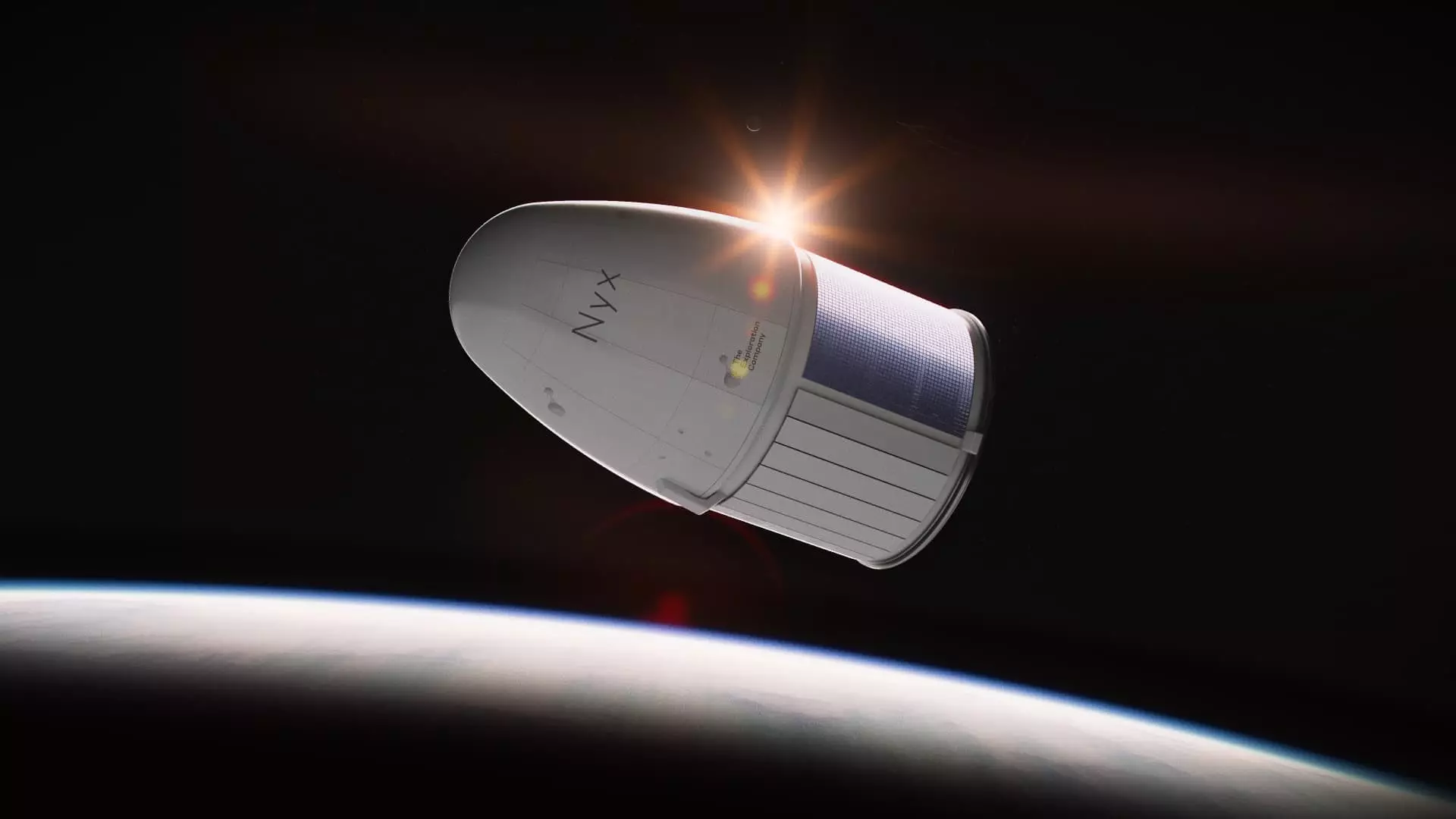In a significant advancement for the private space sector, The Exploration Company (TEC) has secured a staggering $160 million in funding to advance the development of its reusable capsule, Nyx. Announced on a recent Monday, this fundraising round, led by notable venture capital firms Balderton Capital and Plural, also saw the participation of influential government-backed entities from France and Germany. This financial injection positions TEC as a formidable player in the ever-growing space exploration market, fulfilling rising demands for both astronaut travel and cargo transport to space stations.
At the heart of TEC’s venture is Nyx, a capsule ingeniously designed to launch aboard rockets, bearing passengers and cargo into the vastness of space. The reusable nature of Nyx is revolutionary; after completing its mission and delivering its payload, the capsule can re-enter the Earth’s atmosphere and be prepared for subsequent flights. This capability not only increases efficiency but significantly reduces costs compared to traditional, single-use space vehicles.
“There’s a big market, growing at above 10% annually, as more nations aspire to send their astronauts into orbit and aim for lunar exploration,” expressed Hélène Huby, the visionary founder and CEO of TEC. This statistic encapsulates the heightened global interest in space initiatives, catalyzed by multiple nations’ aspirations to establish their own space programs.
While TEC positions itself strategically within this burgeoning market, it faces considerable competition, especially from established players like SpaceX, which operates the Dragon capsule. In addition, TEC is also contending with emerging rivals from countries like China and Russia. Huby has articulated a clear vision: “We must cultivate a robust space transportation framework in Europe, providing an alternative to reliance on companies like SpaceX.” This assertion emphasizes the strategic necessity for European nations to foster their own capabilities in space travel, thereby enhancing autonomy and innovation.
Despite the saturation of competitors, TEC differentiates itself with a European-centric approach to space transport—an aspect likely to resonate with various governmental and commercial stakeholders keen on establishing independent operational frameworks distinct from dominant players.
TEC is currently hard at work on an upgraded version of the Nyx capsule, which is slated for launch in the upcoming year, setting the stage for the final iteration anticipated by 2028. This timeline is not just ambitious; it reflects a systematic approach supported by a robust backing from the European Space Agency. Contracts worth $800 million with various entities further solidify TEC’s position, with collaborations including Starlab and Axiom Space, which are both pivotal in the evolving landscape of space habitation and transportation.
The rapid pace of technological advances and competitive contracts highlights the urgency and importance of establishing reliable and innovative modes of transportation to and from future space stations.
The interest in space exploration is expanding exponentially, with nations such as the United States, China, and India embarking on ambitious projects. One of the most notable initiatives is NASA’s Gateway program, envisioned as the first space station orbiting the moon. This project exemplifies the escalating complexity and scale of global space missions, necessitating increased cargo transport capabilities.
Huby indicates a clear connection between the growing number of space travelers and the subsequent demand for cargo: “The more people we send up, the greater the need for transporting additional equipment and supplies.” As these projects unfold, TEC’s role could become increasingly pivotal in shaping the infrastructure needed for sustainable space exploration.
As TEC pursues its vision, Huby envisions the company at the forefront of developing the technology needed to facilitate safe and efficient cargo delivery back to Earth after missions. This backward capability is crucial as it directly impacts mission sustainability and the logistics of ongoing space exploration ventures.
The Exploration Company stands at an exciting crossroads in the realm of space exploration. With the infusion of new capital, robust partnerships, and a clear vision for the future, TEC is poised to become a key player within the industry, bringing tantalizing prospects of a new age of space travel to fruition. As global interest escalates, the push for alternatives such as Nyx will undoubtedly shape the very fabric of how humanity engages with the cosmos.

